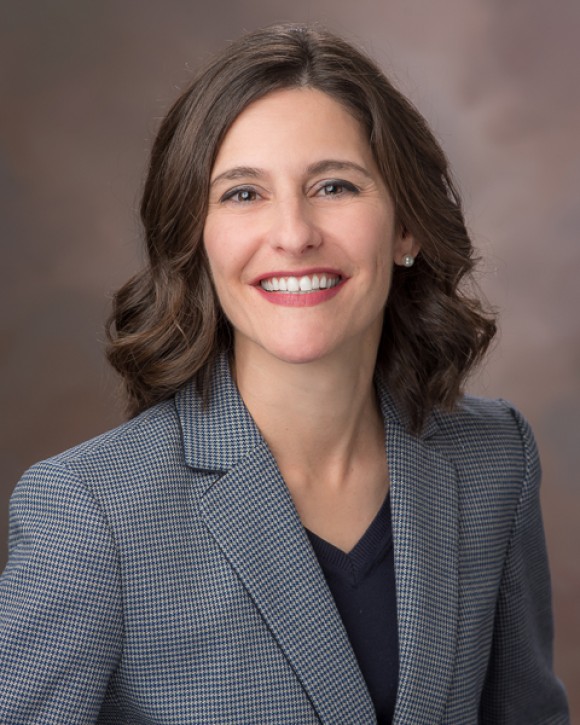From the President: Closing my sevice with NCMB with a “heart full of gratitude”
Categories: President’s Message Comments: comments Print Friendly Version | Share this item
Dr. Khandelwal
As I look back on these past years, it is clear to me that serving with NCMB has been much more than regulation of the practice of medicine. While NCMB is most known for its enforcement work, my service with the Board has routinely afforded me the opportunity to be part of projects that go above and beyond licensing and discipline.
During my first term as a Board Member, I was honored to be asked to serve as the inaugural chair of NCMB’s Wellness and Burnout workgroup, which identified ways for the Board to better understand and prioritize the mental health and wellbeing of its licensees. NCMB emphasized that licensee wellness is not just a personal issue but a critical component of patient safety. Through that workgroup NCMB, in collaboration with the NC Professionals Health Program and other stakeholders, renewed its commitment to removing barriers to treatment for medical professionals who are struggling with depression or other mental health issues. Just in the last three years, NCMB has twice been recognized for removing concerning mental health questions from its license applications and renewal questionnaires by the Lorna Breen Heroes Foundation, a national nonprofit that advocates for clinician wellness.
Another highlight of my time with NCMB has been participating in the Regulatory Immersion Series mock disciplinary experience the Board presents annually at every medical school and PA program in North Carolina. This innovative program explores ethical and professional issues that students may face during their careers while educating them about the role of medical regulation. This program was created during my tenure with the Board and I have had the pleasure of presenting it to enthusiastic students multiple times. It is NCMB’s hope that, over time, RIMS will help participants avoid regulatory issues over the years.
Of all of the important topics I have had the privilege to work on with NCMB, the one that ultimately mattered most to me is the one that initially inspired my decision to serve on the Board: ensuring appropriate care for patients with pain, as well as those struggling with substance use disorder. As a hospice and palliative care physician who regularly prescribes opioids to patients coping with pain at the end of life, I initially sought to serve as a commonsense voice in regulating these high-stakes areas of medicine. Relying on my years of experience, I sought to bring a deep and compassionate understanding of how chronic illnesses like opioid use disorder (OUD) intersect with other aspects of care, particularly with other serious and chronic illnesses.
I am grateful to have been involved in many different projects that seek to improve the quality and safety of care provided to patients who are treated with opioids or who are treated for OUD. In my time with NCMB, the Board has worked to educate its licensees about the many aspects of the NC STOP Act of 2017 that affect physicians treating pain and has collaborated with NC DHHS and other partners to encourage compliance with the requirement for all opioid prescribers to register and use the state’s prescription drug management program, the NC Controlled Substances Reporting System. We also voted to adopt the 2022 revision of the CDC Clinical Practice Guideline for Prescribing Opioids for Pain, which sought to clarify several aspects of the original 2016 version that CDC acknowledged may have encouraged prescribers to establish an overly rigid standard of care. More recently, NCMB has sought to deepen its understanding of treatments for opioid use disorder, especially Medication for Opioid Use Disorder or MOUD. I was delighted to help facilitate bringing a leading addiction medicine specialist in the state to present to the Board on efforts to increase patient access to MOUD, especially in rural and underserved areas. NCMB ended up collaborating with this specialist and her colleagues on an eight-part CME series on the diagnosis, treatment and management of opioid use disorder.
I think we all want to feel we have made a positive impact on any organization we have been involved with, but certainly any progress made was never mine alone. It would not have been possible without the collective energy and dedication of my amazing colleagues on the Board, our professional staff and the unwavering guidance and support of stakeholders and addiction medicine experts across the state.
Though my formal role with NCMB may be ending, I remain committed to upholding the highest standards in medicine, to the safety and wellbeing of all patients, and to supporting the ongoing growth of our profession.
I leave this position with a heart full of gratitude and optimism for what is to come.
With deepest respect and gratitude,
Christine Khandelwal, DO, MHPE